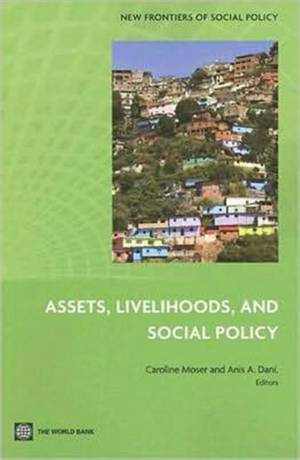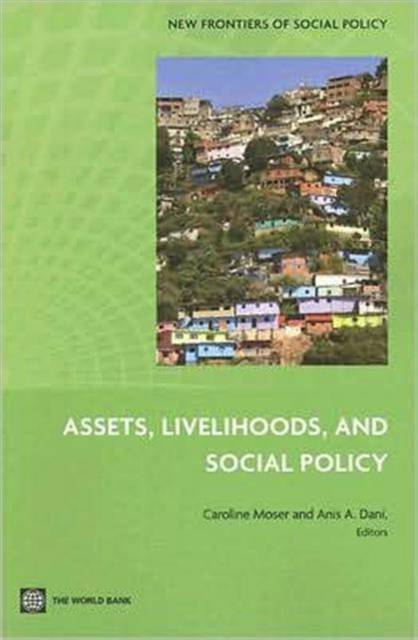
Bedankt voor het vertrouwen het afgelopen jaar! Om jou te bedanken bieden we GRATIS verzending (in België) aan op alles gedurende de hele maand januari.
- Afhalen na 1 uur in een winkel met voorraad
- In januari gratis thuislevering in België
- Ruim aanbod met 7 miljoen producten
Bedankt voor het vertrouwen het afgelopen jaar! Om jou te bedanken bieden we GRATIS verzending (in België) aan op alles gedurende de hele maand januari.
- Afhalen na 1 uur in een winkel met voorraad
- In januari gratis thuislevering in België
- Ruim aanbod met 7 miljoen producten
Zoeken
Assets, Livelihoods and Social Policy
€ 34,45
+ 68 punten
Omschrijving
Includes papers which discuss the strategies adopted by people to accumulate assets through migration, housing investments, natural resources management, and informal businesses. This volume considers how an asset-based social policy could enable those strategies or help them overcome the constraints of an unfavorable institutional environment.
Specificaties
Betrokkenen
- Uitgeverij:
Inhoud
- Aantal bladzijden:
- 250
- Reeks:
Eigenschappen
- Productcode (EAN):
- 9780821369951
- Verschijningsdatum:
- 30/05/2008
- Uitvoering:
- Paperback
- Gewicht:
- 582 g

Alleen bij Standaard Boekhandel
+ 68 punten op je klantenkaart van Standaard Boekhandel
Beoordelingen
We publiceren alleen reviews die voldoen aan de voorwaarden voor reviews. Bekijk onze voorwaarden voor reviews.








